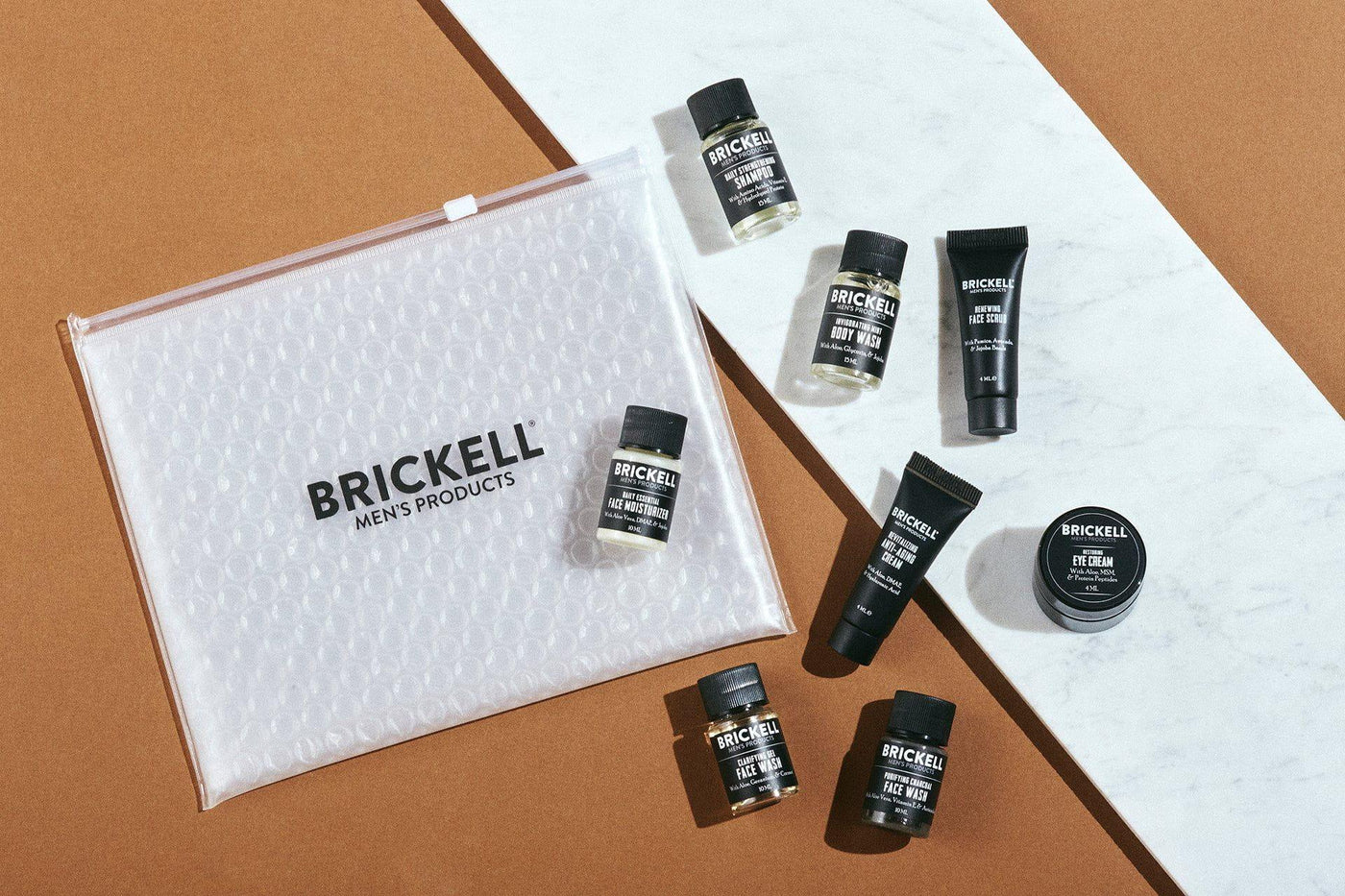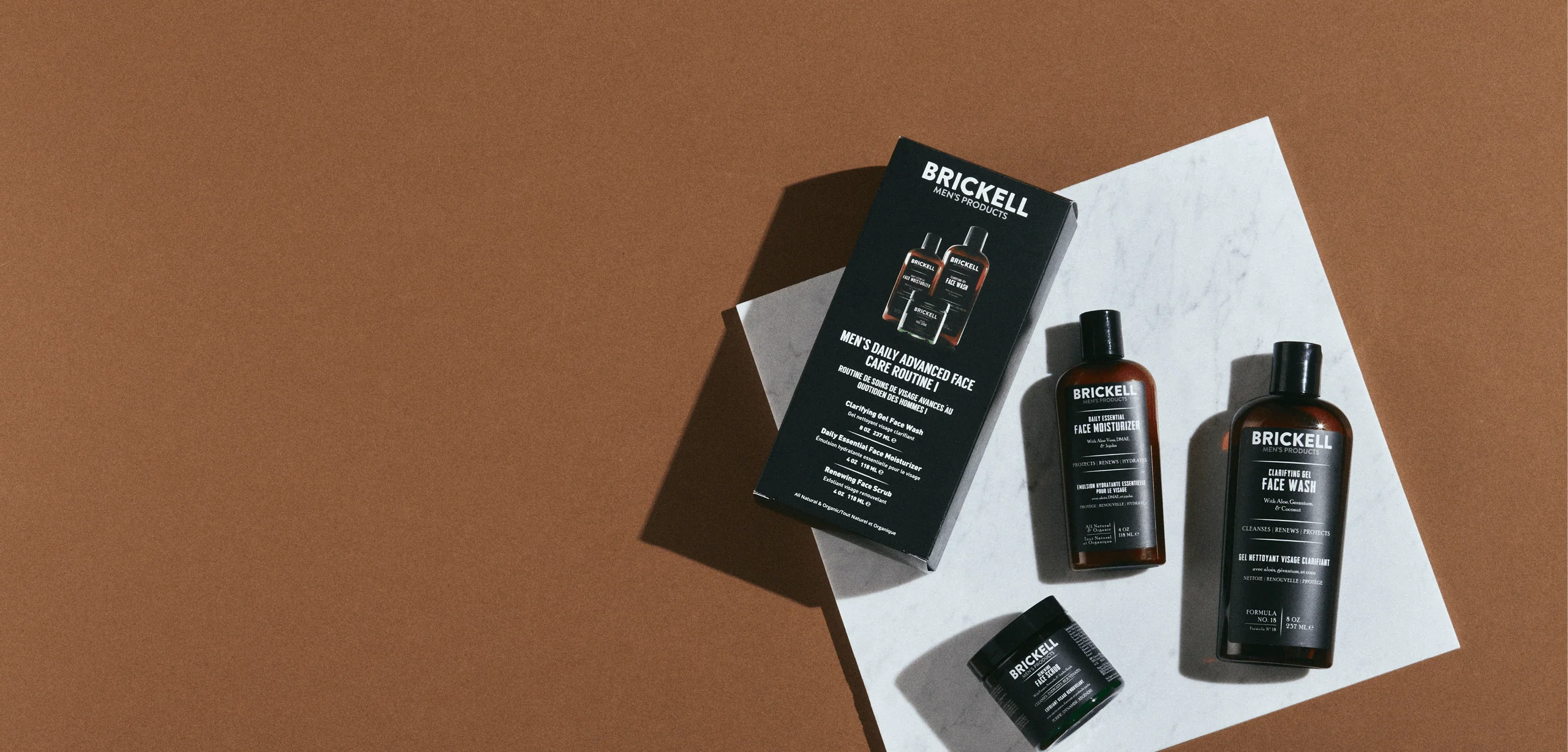The Grooming Manual
How Much Does Your Diet Affect Your Skin?

You are what you eat. So yes, there’s no avoiding that the foods you eat have an impact on your health - and that includes your skin. In general, a healthy diet will contribute to a healthy appearance. Simple.
But there’s a lot of nuance and conflicting advice to delve into beneath the surface. What about popular diets like keto, paleo, vegan, etc.? Are there specific foods that will slow the aging process? Are sugar and dairy going to aggravate adult acne?
There are tons of questions about exactly how your diet affects your skin. While science hasn’t been able to answer them all to 100% satisfaction just yet, there is a reliable body of research that can help you make healthy dietary choices for your skin.
Some skin conditions - especially acne - have been researched for possible links to diet for many years. In others cases, the emphasis on diet and skin conditions is more recent. Here’s what the research says about diet and dermatology:
Skin Cancer
Here come some sobering statistics from the Skin Cancer Foundation:
- Skin cancer is the most common form of cancer diagnosed in the US and around the world.
- More people are diagnosed with skin cancer than with all other forms of cancer combined.
- 20% of Americans will develop skin cancer by the time they reach 70.
Can your diet prevent your risk of developing skin cancer? Large scale studies have consistently shown that a diet rich in fruits and vegetables contributes to an overall decrease in cancer risk. Connecting that to skin cancer specifically is more complex.
While some results have been conflicting, a promising 11-year study looked at dietary patterns in participants and their affects on cancer risk. It was determined that the fruit and vegetable pattern decreased the risk of skin cancer by 54%.
These foods are thought to be most effective because of their concentrations of antioxidants. Consistently, greater benefits are identified by eating a diet based on whole foods that contains a variety of compounds which contribute to overall health and cancer prevention. It seems that some other compounds in foods, not just antioxidants, work together to create a positive affect on your health.
Related Reading:
Acne
Many teens are warned about how their greasy, sugary diet is going to cause an explosion in acne. But is it true? And do you need to worry about your diet if you continue to struggle with acne as an adult?
When it comes to dairy, it seems that there is a link between dairy consumption and acne, although not as significant as it’s often made out to be. That’s because “researchers have demonstrated an association between dairy consumption and acne in three separate populations, and a review concluded that the available data is supportive of an epidemiologically weak association between dairy and acne.” It is believed that the way milk affects the hormones can lead to greater development of acne.
The typical Western diet that contains many foods with a high glycemic load index - like sugar, white rice, and white bread - also has links to increased acne. Randomized controlled trials have shown that reducing such foods leads to a decrease in acne.
So if you’re an adult struggling with acne, what can you do? Reduce sugar and simple carbohydrates in favor of more fruits and vegetables and complex carbs like whole grains.
Related Reading:
Skin Aging
Bad news for guys with a sweet tooth - sugar is directly linked to skin aging. Here’s why.
Saggy skin, wrinkles, and many of the typical physical changes we associate with aging are related to the way collagen and elastin fibers change as you get older. Unfortunately, a diet high in sugar can speed up the process of collagen fiber cross-linking that produces wrinkles.
Even though this process occurs naturally, research shows that the rate depends on your diet. Studies show that glucose and fructose in the diet are major factors, but so is the way you prepare your meals with grilling, frying, and roasting being the most problematic.
The good news is that you can fight the aging process with food too. The glycation process that sugar speeds up can be slowed down with a variety of herbs and spices, including oregano, cinnamon, cloves, ginger, and garlic. And, as is the case across the board, eating plenty of fruits and vegetables contributes to a long-lasting naturally youthful appearance.
Related Reading:
Smart Dietary Choices for Your Skin
No one eats a perfect diet. And there is no magical food that will become your secret Fountain of Youth. The best way to choose a healthy diet that keeps your skin looking great is simple - balance.
Eating a variety of whole, non-processed foods is key. That includes large servings of all kinds of vegetables. That way you get all the nutrients you need for healthy, smooth skin, including:

Omega-3 Fatty Acids
Essential for keeping your skin supple, smooth, and youthful. Research has shown that it has anti-inflammatory benefits, contributes to increased UV protection, and helps slow the aging process. It’s easy to become deficient in this critical nutrient but its plentiful in fatty fish like salmon, herring, and mackerel and flaxseed, chia seeds, kidney beans, and spinach.
Vitamin C
Helps build collagen, fights the aging process, reduces the damage the sun’s UV radiation does to your skin, and prevents pigmentation issues. Citrus fruits, walnuts, and kale are excellent sources of vitamin C.
Vitamin A
Carrots, sweet potatoes, spinach, and oranges all contain beta-carotene, which your body can use to produce vitamin A. It helps prevent sun damage, restores a healthy glow, and prevents skin dryness.
Monounsaturated Fats
Avocados and olive oil both offer a combination of antioxidants and healthy fats that contribute to keeping your skin looking its best. Research provides support for “a beneficial role of olive oil in preventing severe facial photoaging.”
Beware of Beverages
You also need to be aware of what you’re drinking. Many guys take in a massive quantity of calories in the beverages they choose to drink throughout the day. If you go in for a creamy, sugary coffee drink every morning and afternoon, that’s basically half a meal - loaded with dairy and sugar.

If you want a slight caffeine pick-me-up plus significant skin benefits, make green tea your go-to hot drink. It contains polyphenols and catechins - both of which keep your skin firm and elastic while also preventing sun damage. If you’re worried about preventing wrinkles (or not letting those you already have get deeper) make green tea part of your daily diet - but without heaps of sugar. If you don’t like it plain, try a squeeze of fresh lemon or a touch of honey.
Alcohol might help you relax, but it’s stressful for your body to process. Alcohol dehydrates your body and skin, leading to poor complexion, deeper wrinkles, and more pronounced fine lines. So make sure you keep your drinking to a moderate, balanced level if you want to keep your skin looking great and choose beverages that are easier on your skin.
Diet as Part of a Healthy Skin Lifestyle
Being smart about what you eat is an excellent way to stay healthy and looking your best. But food alone isn’t going to keep your skin youthful and smooth. For that, you need to lead a healthy lifestyle - one that includes staying fit, reducing UV damage, drinking plenty of water, and making time for adequate sleep.
Need to make big changes to your diet? Take it easy and start with small, achievable goals. You don’t need to overhaul every meal. Instead, consistent and maintainable changes will contribute to you looking great - now, and for years to come.

